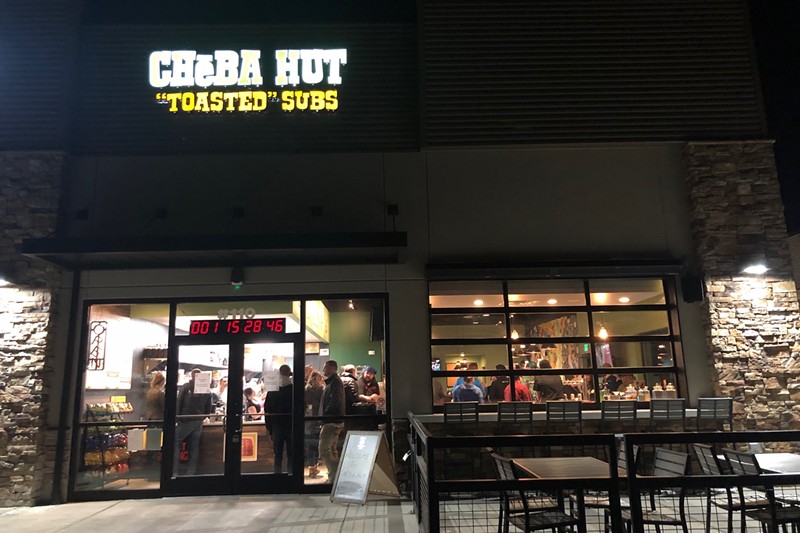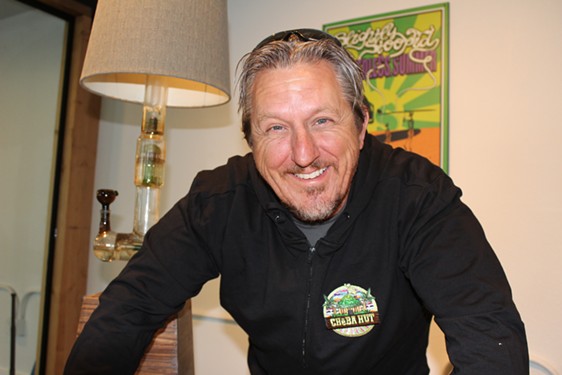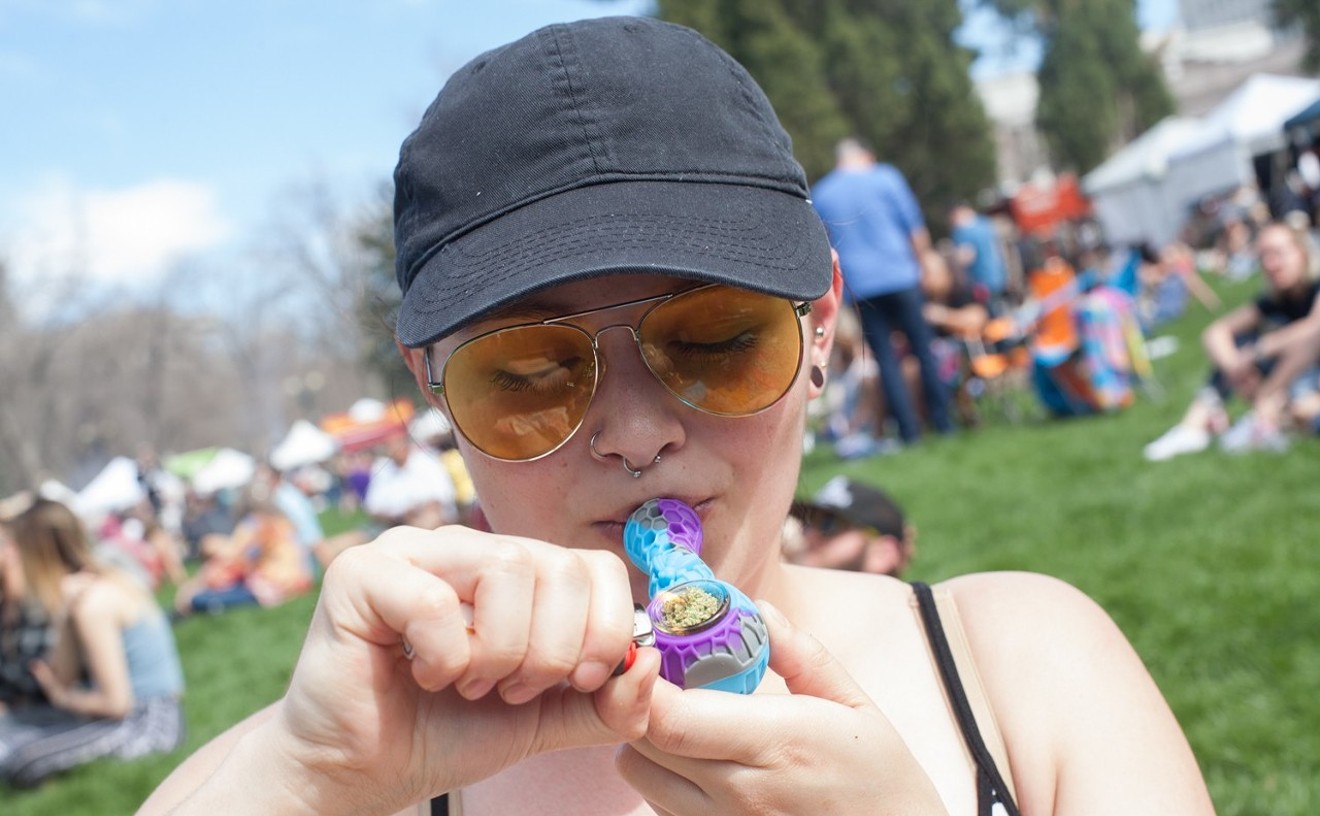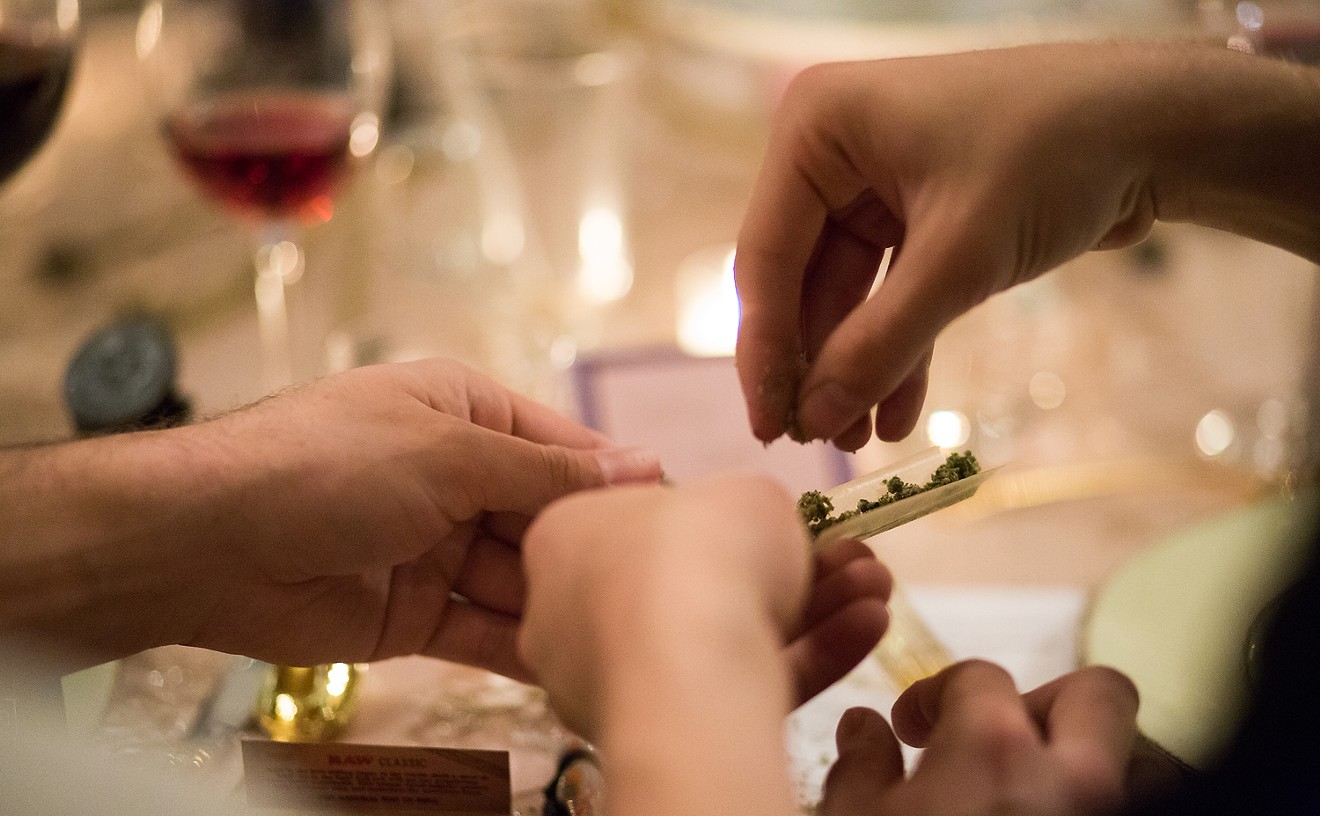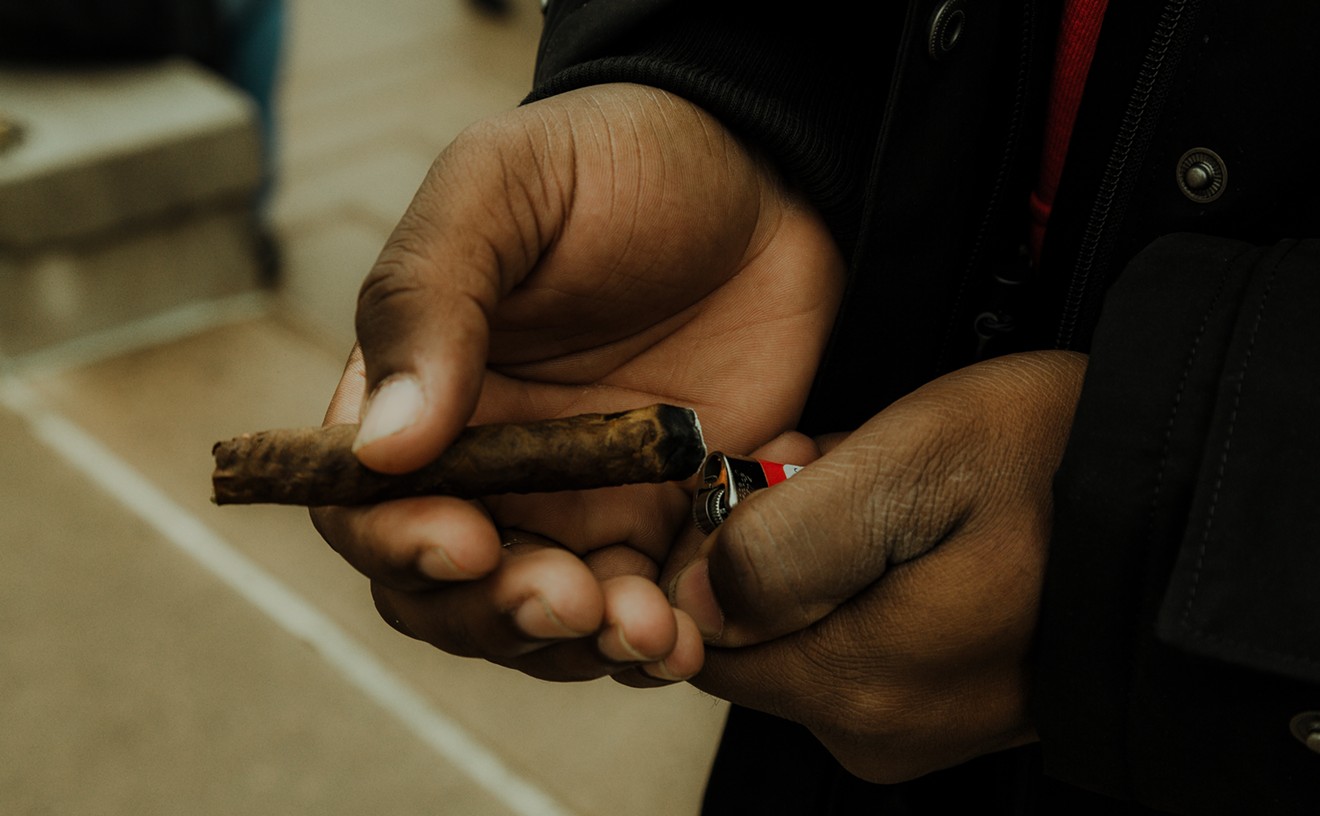It was all about freedom of speech and a “fuck you” to the haters when Scott Jennings opened the first Cheba Hut in 1998 in Arizona, he says. Over two decades later, his passion for toasted subs hasn't burned out, thanks largely to his restaurant chain's home away from home in Colorado.
Since opening his first Colorado outpost in Fort Collins in 2003, Jennings has secured thirteen additional Cheba Hut locations statewide, for the most Cheba Hut franchises in any state. In the past five years alone, Cheba Hut has opened three locations in Denver, with a fourth on the way at Sloan's Lake, and new locations in Colorado Springs, Longmont, Johnstown and Greeley.
It may or may not be a coincidence that Colorado, a more friendly state for cannabis users than Arizona, also began recreational weed sales five years ago.
“I’m through and through a foodie,” Jennings says. “I just wanted to combine two things I love together: food and weed. It’s all about freedom of speech and being different.”
After working for a friend at a pizzeria in college and as a food delivery driver, Jennings realized food was a passion of his. Combining that with his love of getting high eventually gave birth to the cannabis-themed sandwich shop, with sandwiches named after cannabis strains and pot-centric puns.
Cheba Hut’s opening wasn’t without stigma, however. Medical marijuana wasn't legal in Arizona until 2010, and recreational use is still illegal there today. Opening a cannabis-themed sandwich joint in 1998 caused quite a stir, according to Jennings, but he welcomed it, and wanted to do something other people would see as crazy.
“The best thing about Cheba Hut is we’ll do it our way,” he says. “We like to do crazy things, and like to be different. Doesn’t matter what other people think.”
Jennings eventually made his way to Colorado, opening in Fort Collins, where there are now two Cheba Hut restaurants. The "Toasted" Subs sign has become a beacon for Coloradans hungry for sandwiches with names like “White Widow," “Dank” and "Pakalolo."
The expansion hasn't been a slow burn. Eight Cheba Hut locations have opened across the country this year, with four of those in Colorado. One interesting new location is in Colorado Springs, where recreational pot sales are still banned. However, Jennings says there was high demand for it.
Jennings plans to have fourteen Cheba Hut locations open in Colorado by the end of the year, with the Sloan’s Lake location slated to open in December. There are also plans for Cheba Huts in Atlanta and Austin, and Jennings says he hopes to shake things up in the southern region of the United States.
“It’ll be fun to expand down south, where the Bible Belt is,” he says. “Imagine having a pot sandwich shop in an area where cannabis isn’t really accepted.”
Every Cheba Hut has a few sandwiches that restaurant employees create on their own, so each place has something different to offer. “The best-kept kitchen is because of the people working there,” explains Jennings, who likes to smoke blunts and work on potential menu creations. “There’s nothing better than people making their own creations and having clean ingredients. That’s what really matters.”
And what does Jennings prefer to eat at his own chain? He always enjoys the classic Italian, since it ties back to his Italian roots, he says, or the "Dank" — a pizza-inspired sandwich with jalapeño cream cheese.
“It just depends on my mood,” he says.
[
{
"name": "Air - MediumRectangle - Inline Content - Mobile Display Size",
"component": "12017618",
"insertPoint": "2",
"requiredCountToDisplay": "2",
"watchElement": ".fdn-content-body",
"astAdList": [
{
"adType": "rectangle",
"displayTargets": "mobile"
}
]
},{
"name": "Editor Picks",
"component": "17242653",
"insertPoint": "4",
"requiredCountToDisplay": "1",
"watchElement": ".fdn-content-body",
"astAdList": [
{
"adType": "rectangle",
"displayTargets": "desktop|tablet"
},{
"adType": "rectangle",
"displayTargets": "desktop|tablet|mobile"
}
]
},{
"name": "Inline Links",
"component": "18838239",
"insertPoint": "8th",
"startingPoint": 8,
"requiredCountToDisplay": "7",
"maxInsertions": 25
},{
"name": "Air - MediumRectangle - Combo - Inline Content",
"component": "17261320",
"insertPoint": "8th",
"startingPoint": 8,
"requiredCountToDisplay": "7",
"maxInsertions": 25,
"watchElement": ".fdn-content-body",
"astAdList": [
{
"adType": "rectangle",
"displayTargets": "desktop|tablet"
},{
"adType": "rectangle",
"displayTargets": "desktop|tablet|mobile"
}
]
},{
"name": "Inline Links",
"component": "18838239",
"insertPoint": "8th",
"startingPoint": 12,
"requiredCountToDisplay": "11",
"maxInsertions": 25
},{
"name": "Air - Leaderboard Tower - Combo - Inline Content",
"component": "17261321",
"insertPoint": "8th",
"startingPoint": 12,
"requiredCountToDisplay": "11",
"maxInsertions": 25,
"watchElement": ".fdn-content-body",
"astAdList": [
{
"adType": "leaderboardInlineContent",
"displayTargets": "desktop|tablet"
},{
"adType": "tower",
"displayTargets": "mobile"
}
]
}
]

